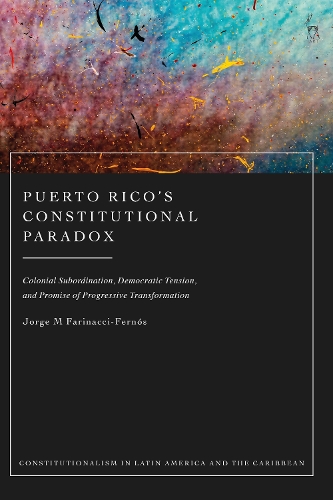
Puerto Ricos Constitutional Paradox: Colonial Subordination, Democratic Tension, and Promise of Progressive Transformation
(Hardback)
Available Formats
Publishing Details
Puerto Ricos Constitutional Paradox: Colonial Subordination, Democratic Tension, and Promise of Progressive Transformation
By (Author) Jorge M Farinacci-Ferns
Bloomsbury Publishing PLC
Hart Publishing
20th April 2023
United Kingdom
Classifications
Professional and Scholarly
Non Fiction
Comparative law
320.97295
Physical Properties
Hardback
216
Width 156mm, Height 234mm
Description
This book explains how the People of Puerto Rico managed to adopt a constitution whose content and process were both original and colonialist, participatory and undemocratic, as well as progressive and anticlimactic. It looks in detail at the rich contradictions of the Puerto Rican constitutional experience, focusing on the history and content of the 1952 Constitution. This constitution is the only constitutional document written by the Puerto Rican People themselves after more than 500 years of Spanish and US colonialism. By exploring Puerto Ricos unique history and constitutional experience the book shines a spotlight on key emerging themes of comparative constitutional studies in this area: state constitutionalism, the persistence of colonial relationships in the Caribbean, and the continued development of constitutionalism in Latin America. The book delves deep into the particular experience of Puerto Rican constitutionalism which combines elements of colonialism, democratic tensions, and progressive policies. It explains how these features converge in a constitutional project that has endured for 70 years and continues its contradictory development. It considers issues such as the islands colonial history, including its conflicting relationship with democratic values and the constant presence of social movements and their struggles. It also explores the content of the 1952 Constitution, focusing on its progressive substantive policy, particularly its rights provisions, its amendment procedures, and the governmental structure it set up.
Author Bio
Jorge M Farinacci-Ferns is Associate Professor at the School of Law, Inter American University of Puerto Rico.
